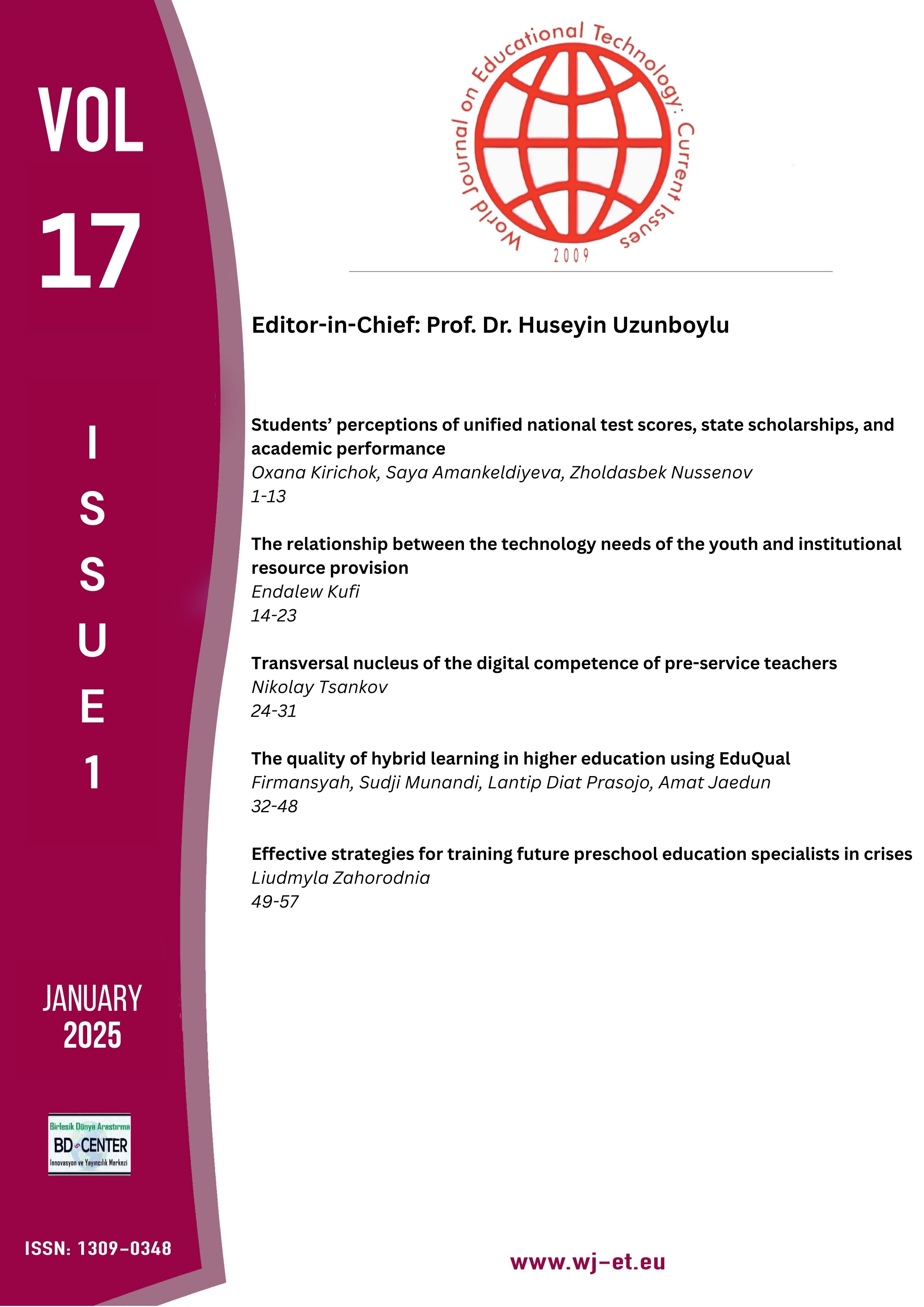Students’ perceptions of unified national test scores, state scholarships, and academic performance
Main Article Content
Abstract
The Unified National Testing in Kazakhstan evaluates students’ past academic performance, predicts career prospects, and guides state educational scholarship allocation. This study examines private university students’ perceptions of the relationship between their UNT scores, selected subjects, scholarship opportunities, and academic performance. Using a qualitative approach, data were gathered through semi-structured interviews with 20 second-year students from four majors: Finance, Geology, Nursing, and Law. Participants were selected through maximal variation sampling, ensuring diverse views by including those with the highest and lowest UNT scores and GPAs. Thematic analysis, guided by Creswell’s framework, revealed a gap between high school-specific academic skills and the broader competencies required for university success, such as critical thinking, teamwork, and presentation skills. Findings highlight the need to reform the scholarship allocation system by incorporating accessibility measures and better aligning high school preparation with university-level demands.
Keywords: Academic performance; examination; scholarship; unified national testing
Downloads
Article Details

This work is licensed under a Creative Commons Attribution 4.0 International License.
World Journal on Educational Technology: Current Issues is an Open Access Journal. The copyright holder is the author/s. Licensee Birlesik Dunya Yenilik Arastirma ve Yayincilik Merkezi, North Nicosia, Cyprus. All articles can be downloaded free of charge. Articles published in the Journal are Open-Access articles distributed under CC-BY license [Attribution 4.0 International (CC BY 4.0)].
Birlesik Dunya Yenilik Arastirma ve Yayincilik Merkezi (BD-Center)is a gold open-access publisher. At the point of publication, all articles from our portfolio of journals are immediately and permanently accessible online free of charge. BD-Center articles are published under the CC-BY license [Attribution 4.0 International (CC BY 4.0)], which permits unrestricted use, distribution, and reproduction in any medium, provided the original authors and the source are credited.
